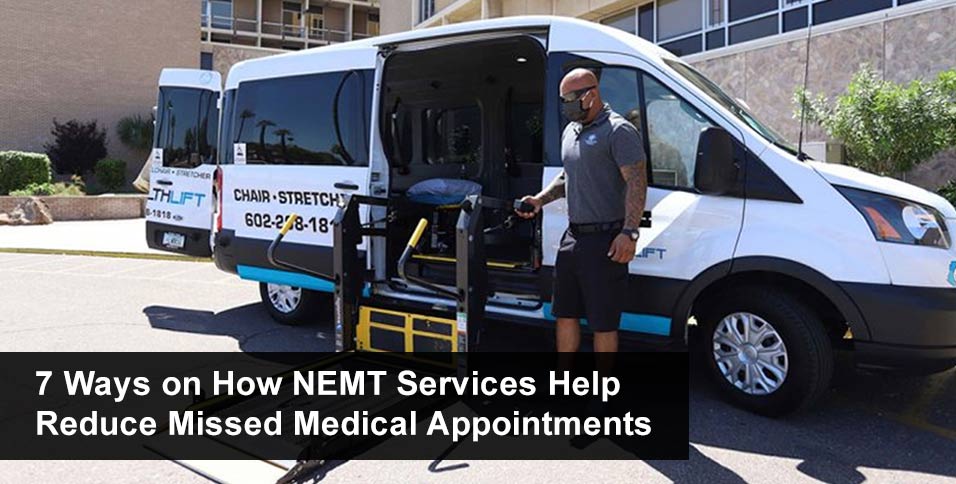According to the American Hospital Association, approximately 3.6 million people in the United States miss out on medical care due to transportation issues each year. These challenges include limited access to public transit, mobility issues, and conflicting schedules. If left unresolved, these barriers lead to missed appointments, delayed treatments, and ultimately, poorer health outcomes.
Non-Emergency Medical Transportation (NEMT) services play a vital role in bridging the gap between these patients and their healthcare providers. Let’s explore ten key ways NEMT services make a critical difference in healthcare access, outcomes, and efficiency.
1. Removes Transportation Barriers
NEMT services address transportation obstacles by providing dependable door-to-door transportation, tailored to each patient’s needs. Tools such as advanced non-emergency transportation software like Ryde Central ensures seamless coordination of drivers, vehicles, and routes. This optimizes trip planning and offers real-time tracking, which reduces delays and improves patient satisfaction.
NEMT vehicles contain wheelchair lifts, ramps, and secure restraints to ensure safer, more comfortable travel for those with limited mobility. Trained NEMT professionals assist with transfers from home to vehicle to medical facilities.
2. Eliminates Transportation Worries
Transportation-related worries add stress to an already vulnerable time. Concerns about traffic, parking, or unreliable ride-sharing are just some of the things that can deter patients from seeking care. Essentially, NEMT alleviates these burdens by offering reliable scheduling with punctual pick-ups and drop-offs through the use of automated communication tools like reminders and real-time notifications, reducing anxiety for patients and their caregivers. As such, patients arrive at appointments calm and ready, which leads to better interactions with healthcare providers.
NEMT also helps patients maintain independence, especially seniors, persons with disabilities, and those recovering from treatment. By reducing reliance on family or friends and providing professional care, NEMT ensures dignity and autonomy.
3. Offers Flexible Scheduling
Healthcare appointments can be unpredictable due to common issues such as reschedules, delays, or post-treatment needs. As NEMT makes transportation less stressful, its flexibility ensures that appointments can be kept even when schedules change unexpectedly.
In particular, NEMT providers offer flexible scheduling to accommodate early mornings, late nights, and same-day requests. In addition, user-friendly booking tools allow patients, caregivers, or healthcare staff to schedule, cancel, or modify rides with ease. This flexibility ensures that patients never miss an appointment due to scheduling challenges.
4. Improves Appointment Adherence
Missed appointments are costly for both patients and healthcare providers since it often leads to delayed diagnoses and treatments as well as increased strain on emergency rooms as patients turn to crisis care. A study conducted by BMC Public Health in 2022 showed that making NEMT options readily available to patients can lead to a significant decrease in missed appointments.
5. Enhances Patient-Centric Technology
Modern NEMT services use advanced non-emergency transportation software to improve efficiency and patient experience. Key features include user-friendly apps for easy booking and tracking, automated notifications to keep patients and caregivers informed, and data analytics to optimize routes, reduce wait times, and monitor performance.
6. Provides Peace of Mind for Caregivers
NEMT services also offer peace of mind to caregivers, reducing much of the burden that’s already placed on their shoulders. Family caregivers juggle busy schedules and may not always be able to transport their loved ones to appointments. NEMT provides a trusted alternative by offering peace of mind for caregivers, knowing patients are in capable hands. This reduces pressure on caregivers and allows them to focus on emotional and practical support.
7. Leads to Better Health Data
Timely access to care directly impacts health outcomes. When patients miss routine appointments or preventive care, this can force them to seek admission at a hospital and significantly increase their healthcare costs.
NEMT helps patients stay on track with routine check-ups, therapies, and follow-ups, which are crucial for managing chronic conditions. Reliable transportation reduces missed appointments and ensures continuity of care.
Healthcare organizations can also use transportation data to identify gaps in care, uncover systemic barriers, and address access issues. This data-driven approach improves patient health and reduces long-term costs.
Taking Charge of Healthcare Access
Transportation should never be the reason patients miss medical appointments. NEMT services bridge that gap, supporting timely, reliable care. As healthcare evolves, leveraging non-emergency transportation software enables organizations to meet increasing service demands while prioritizing efficiency, patient satisfaction, and accessibility.
Also Read: Medical Interpreting On-Demand: Bridging Language Barriers for Better Patient Care
















